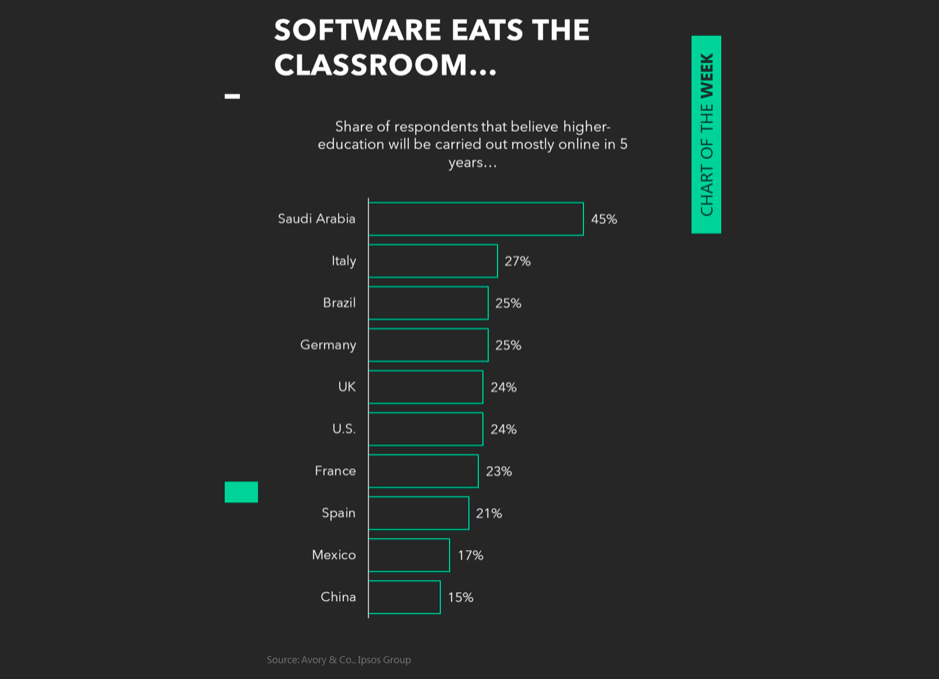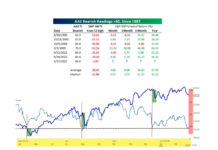“An investment in knowledge pays the best interest.” – Benjamin Franklin
For centuries, a quality education was synonymous with privilege, and a luxury many could only hope for.
Today, traditional education is still viewed as a necessity to achieve upward mobility. Fortunately, the internet is challenging and disrupting this as online learning gains traction. Education is expanding beyond the physical classroom, and content has been made accessible to billions around the world at a fraction of the price.
In a recent survey by Ipsos Group, 45% of respondents in Saudi Arabia believed higher-education would happen mostly online in 5 years time. This was followed by 27% in Italy, 24% in the U.S. and 15% in China.
Here’s the global online learning survey:

Education Software Fuels Online Learning – Opening New Doors
Prior to the pandemic, many higher education institutions were already moving to online solutions such as fully-online degree programs or offering massive open online courses (MOOCs) through websites like Coursera.
Despite the progress, it remains a category that has seen prices rise sharply over the past 3 decades. Since 1996, the cost of a college education has roughly tripled. Today, the average cost of a college education is $20,000 per year. With over 20 million college students in the U.S., this equates to more than $400 billion in annual spend on tuition.
It’s interesting to look at the innovation taking place today and think about what the future of education could look like. Organizations like Lambda School are exploring new education models with Income Share Agreements. Others like Google offer alternative pathways to employment through their Career Certificate programs.
Twitter: @_SeanDavid
The author or his firm have positions in mentioned securities at the time of publication. Any opinions expressed herein are solely those of the author, and do not in any way represent the views or opinions of any other person or entity.







